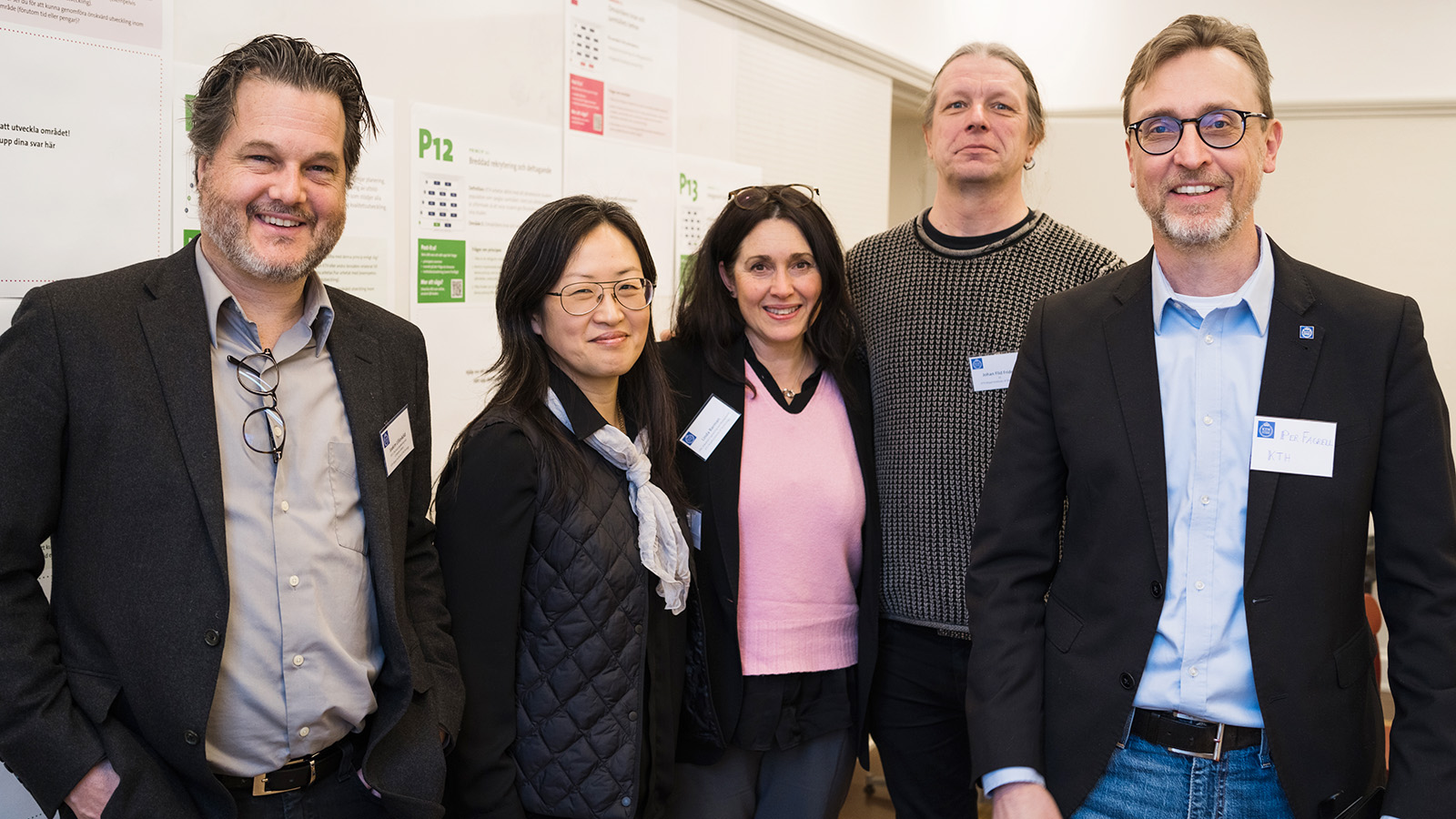Rethinking the crisis

Running a major change program for educations at KTH in the shadow of savings requirements and high costs for premises may raise some questions. The answer, however, seems to be that forward-looking is precisely what is needed in times of crisis. In line with that strategy, this year's education conference, SoTL, became the start of a co-creation campaign for the programme Framtidens utbildning.
When the new KTH President, Anders Söderholm, opened this year's SoTL (Scholarship of Teaching and Learning conference), he described the tough economic situation as a motivation to invest in the future of learning, rather than as an obstacle. A view shared by Joakim Lilliesköld, Programme Director for the programme Framtidens utbildningar:
“A crisis like this creates an important discussion about what our educational environment should look like, how we use our premises, and what we want from our students. The fact that we are now underperforming in some areas can be seen as a clear signal that we should be thinking in new ways,” he says.
“Instead of just cutting away costs, we can see it as an opportunity to try to find the root of the problems we have, to invest our way out of the problems and grow stronger.”
In the programme management team for Framtidens utbildning, Joakim Lilliesköld is joined by ITM's Anna Jerbrant, SCI's Gunnar Tibert, coordinator Per Fagrell and communicator Sofie Kim. An important part of their work is to listen to different groups and connect the program with the real needs of the organisation. A co-creator campaign was therefore launched during this year's SoTL.
“The campaign will take place in different places and forms during the spring, and all interested parties are welcome to contribute with content to the 5 areas and 13 principles that make up the framework,” says Sofie Kim.
Education for the societal challenges of the future
According to Joakim Lilliesköld, there are always opportunities for improvement in order for our programmes to continue to be attractive and highly relevant, and for KTH to remain a leading technical university.
“One example is how students' ability to solve societal problems can increase,” he says.
This leads straight to principle number two: “Ability to handle wicked problems for the sustainable societal development (P2)”. A wording that can almost be considered a mission statement for the entire program.
Joakim Lilliesköld describes this as a principle with fantastic potential, even though it may also be the one that will require the most work:
“If we have a systematic approach to that principle and think about what progression of learning activities students need to pass principle 2, much else will fall into place. It is also linked to many other things, such as broadened recruitment and, by extension, a completely new educational culture.”
President Anders Söderholm also addressed principle P2 in his introductory speech and exemplified with sustainable development, rapid technological development, climate crisis and diversification – all “wicked” problems that require good analytical skills and a kind of generic knowledge that helps students to deal with these kinds of issues in the future. Anders Söderholm also said that he would like KTH to be a leader in this type of challenges.
Both a framework and a platform
Sofie Kim says that the framework is just as much a way to create interaction around the principles as it is a guide. It will also be a platform for joint knowledge production and exchange of experience.
Joakim Lilliesköld fills in:
”An important question is how we take advantage of the lessons from the pandemic, and in particular the fantastic exchange of knowledge we had at the time. A big problem is that we do not have the time to develop our activities to the extent we would like, but if we share good experiences, we can become more efficient,” he says.
How can I start interacting with the framework today?
”Contact us for a coffee or a zoom meeting. Tell us what you want to do, or what kind of support you need to move forward. Be involved in developing the principles, describe how knowledge transfer can be achieved in your work, etc. The more feedback we get, the more useful the framework will be.”
Get in touch through framtiden@kth.se
Visit KTH Entré to comment on the framework's areas and principles on site, or contribute digitally:
intra.kth.se/framtidensutbildning (Swe)

Text: Alexandra von Kern
